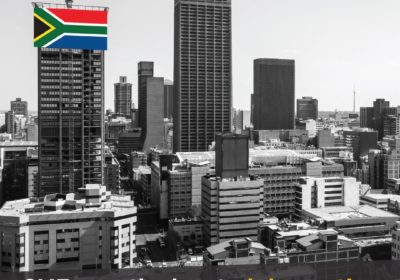
COVID-19: We must keep the economy alive
South Africa, like almost every country on the planet, is fighting to control the spread of the coronavirus strain, Covid-19. While some countries are on complete shutdown, others have put varying degrees of measures in place to try stem the tide.
In times of crises, point scoring, finger-pointing, or quitting is not an option. We need to pull together, draw on the very roots of our humanity to pull in the same direction and do everything we can to navigate the crisis, says CEO of Cash Converters Southern African, Richard Mukheibir.
As President Cyril Ramaphosa eloquently and poignantly told the nation, it is the responsibility of every citizen to contain and prevent the spread of the disease. Social distancing, cleansing and respiratory hygiene are not negotiable.
We have a good idea of how the virus is spread, and so the onus is on every one of us to change our habits and protect ourselves, our loved ones and our communities. This applies to our personal, transit and our work lives.
Already, businesses have staff that are practicing social distancing, wearing gloves and self-isolating if they believe they have been at risk or display symptoms. Businesses of all persuasions have sought to make alcohol-based sanitiser available at various points while encouraging the regular and thorough washing of hands with soap and water.
Working professionals are advised to avoid meetings in closed spaces and to keep working, if they can. The general mantra is “sustain your economic contribution both on the supply-and-demand side as much as you can without exposing yourself physically.”
So, what happens to the Small Business Enterprise?
Mukheibir says it is the responsibility of all of us to keep the economy alive, especially the small and medium enterprise (SME) sector because they provide many jobs and drive local communities. Small businesses are most at risk in the event of an economic catastrophe.
Franchises, such as Cash Converters, have a very strong and proven business model and institutional support, but thousands of other businesses don’t.
Many small businesses that operate on a store or cash model simply cannot afford the luxury of remote working. If the local petrol station’s staff is at home, for instance, the tanks are not going to be operated.
The solution is obvious, but not easy. Firstly, the country must control the spread of the disease and do everything in its power to prevent what has become a total lockdown in some countries. Our population must heed the advice already given. We must all practice preventative measures and all businesses must put every measure in place to protect its staff and customers.
Secondly, businesses themselves, staff and the media need to reiterate the importance of continuing to support the local economy. Spreading panic for panic’s sake will only harm every small business which has so much at stake.
It’s a balancing act for sure. We must make sure we drill home the need for preventative measures while simultaneously making sure that every citizen understands that every small business that implodes will lead to an exponential negative effect on the economy – ironically not unlike the way the disease itself spreads.
South Africa is a resilient country. This new challenge will no doubt stretch us but by our very nature we can weather the storm and come out stronger for it.
The key is going to be avoiding panic. By leading rationally, we can have a positive impact on those around us. By being aware of our surroundings and taking every possible step to prevent the spread of the disease, while simultaneously understanding that we must try do business as far as pragmatically possible, we will save both ourselves and our economy.



